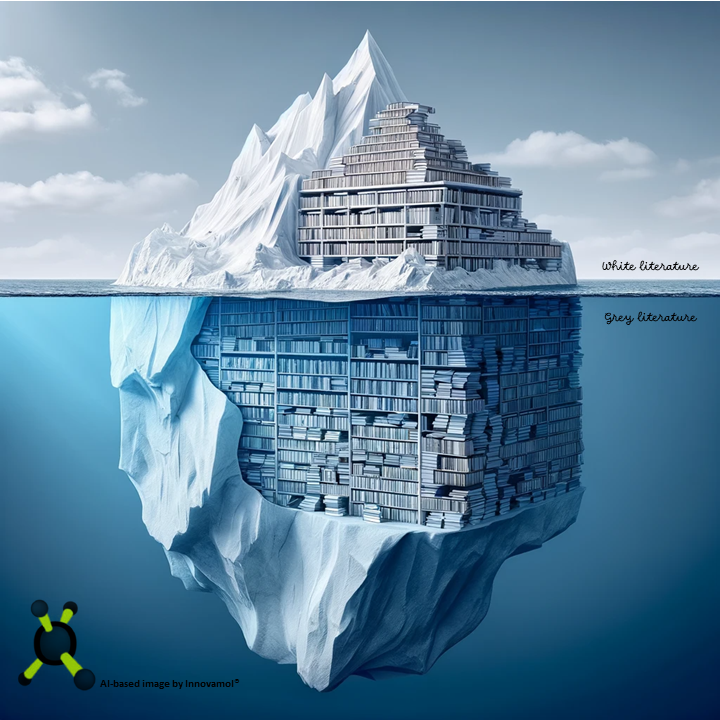Did you know that grey literature encompass a wide variety of information, including scientific consultations?
Innovamol’s team has just embarked on a project about scientific consultations in partnership with the European Food Safety Authority (EFSA). This collaboration focuses on the often overlooked realm of grey literature management. Grey literature is generated outside of the usual academic channels and includes a broad range of scientific items such as reports, working papers, and authorities outcomes, as well as social networks. These documents, originating from a variety of places like government agencies, non-governmental organizations, educational institutions, and commercial businesses, are essential for sharing scientific knowledge and they complement the more recognized white literature, which comprises peer-reviewed academic publications.
In this context, the role of scientific consultations in contributing to the grey literature cannot be understated. These consultations serve as useful tool for collecting a variety of opinions on specific pre-established topics and they engage various participants, including experts, academics, NGOs, industry representatives, and Member States, facilitating the exchange of ideas, comments, and inquiries. This procedure not only improves the transparency and quality of scientific assessments but it also emphasizes how crucial public and stakeholder involvement in scientific debates is becoming. These scientific consultations are especially relevant in response to controversial, ethical, or politically sensitive issues, and, since they are part of the grey literature, they represent a unique challenge in terms of discovery, access, and evaluation. In this direction, Innovamol is not only assisting EFSA in its efforts to promote more transparency and quality in scientific research but is also engaged in creating tools and processes to optimise the consultation process and enhance the accessibility and evaluation of grey documents.
“Science knows no country, because knowledge belongs to humanity, and is the torch which illuminates the world” – Louis Pasteur

